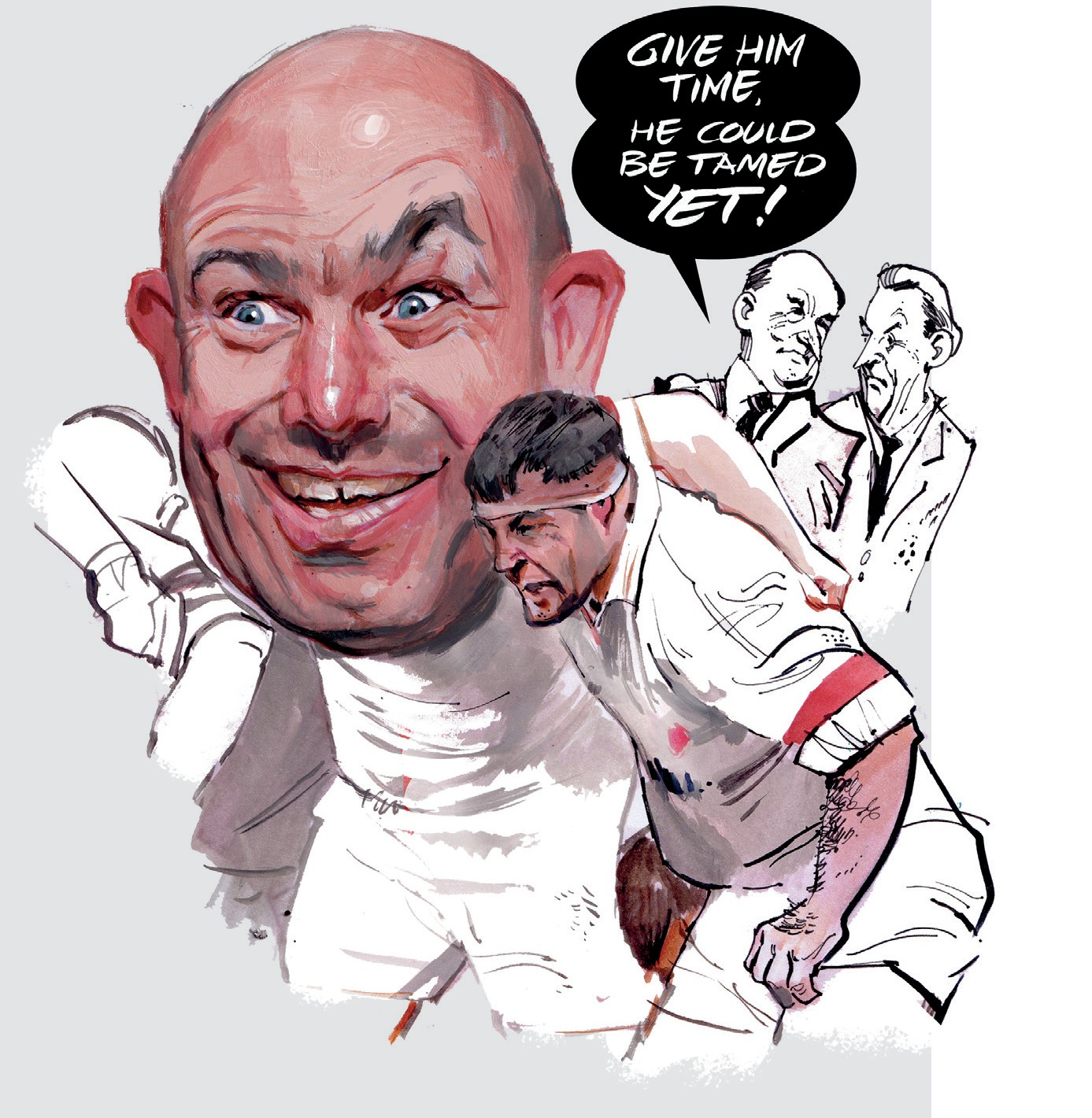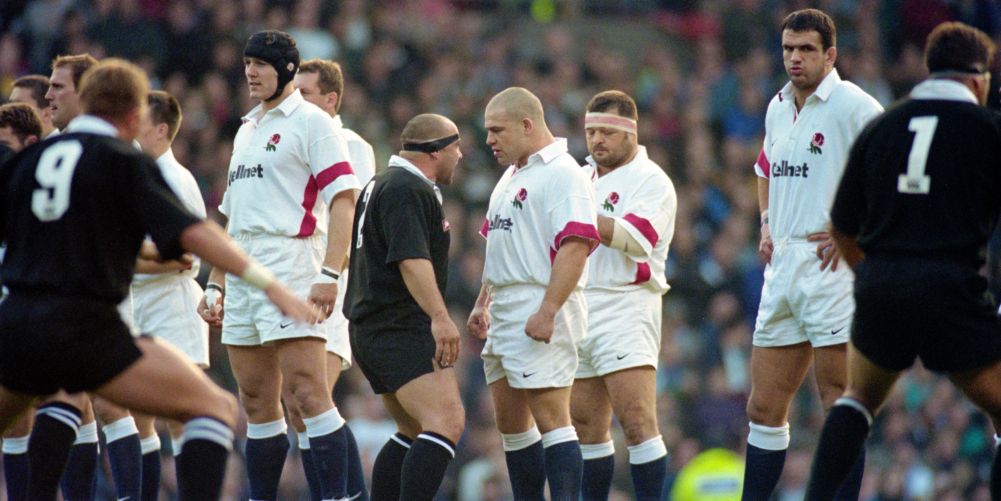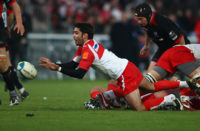Twenty-odd years ago, when Richard Cockerill was telling opponents precisely what he thought of them and squaring up to All Black opponents during the haka and generally instilling a touch of the street-urchin spirit into the England front row, he was the butt of many an in-joke among his fellow hookers.
“Cockers can make the ball talk,” said one rival after an England training camp in the early years of Clive Woodward's stewardship of the national team. “And when he does, it says: ‘Mate, you don't know what you're doing'.”
The received wisdom back then was that the bullet-headed Midlander was incapable of getting something right without getting everything else wrong. A classic example: after putting a Keith Wood-style try past Keith Wood's Ireland during a fractious Five Nations match in 1998, he celebrated by hoofing the ball into the Twickenham stand and found himself incarcerated in the stocks as a consequence.
“You shouldn't have done that,” he was informed by an insufferably self-important personage from the higher echelons of the RFU during the aftermatch formalities. “If that ball had struck someone drinking a hot cup of coffee and the person been scalded, the Union would have been liable for compensation.” Which just goes to show what a life of privilege does to a sense of perspective.
All this brings to mind the old Bob Monkhouse line: “People laughed when I told them I wanted to be a comedian. Well, they're not laughing now.”
It is certainly difficult to continue sniggering at Cockerill as he positions himself as a realistic candidate for the top job in the country when Eddie Jones calls it a day at some point over the next couple of years. Underestimated by so many for so much of his rugby life, he can point to a track record of coaching success and therefore demand to be taken seriously.
Not that Cockerill is the type to demand anything of the kind, self-deprecation being his default position.
Exhibit A? “I like my own company – and that's how most other people like it too,” he has been quoted as saying.
Exhibit B? “For the last two years I've been doing pretty much everything.
“That puts a lot of stress on your brain space, which is difficult when you have a small brain.”
The reality, of course, is that he is nowhere near as daft as he looked during those wild days at the epicentre of the England scrum – days that were far too wild for Woodward's liking, hence Cockerill's hard landing in Nowheresville after the World Cup in 1999.
Suddenly unable to command a first team place at Leicester, let alone with England, he crossed the water to France in search of fresh ideas – an ambitious move that surprised all but those who knew him best.
Having found the inspiration he sought during a spell in Clermont-Ferrand, he returned to Welford Road ready to take some baby steps as a coach. Almost in the blink of an eye, he found himself in charge of the entire tigerstriped kindergarten.
And now, the good Mr Jones is confidently reported to be on his trail. England require the services of an experienced assistant coach after the sudden departure of John Mitchell to Wasps, while Cockerill is looking for meaningful work after ending his association with Edinburgh. If only on that basis, it may be a match made in heaven.
Or maybe hell, depending on your point of view of vertically challenged ex-hookers with professorships in combustibility.

Is a “bad cop, worse cop” routine really what the national team requires at this delicate stage of the cycle, when senior players are recovering from an unusually difficult Lions tour and may not be in the best of humours? Alternatively, might those same players perhaps be in need of a hurry-up after the miseries of the last Six Nations?
There will always be those who believe Cockerill is nothing more than a collection of rough edges, wholly resistant to even the coarsest brand of industrial-strength sandpaper. A natural target for establishment wrath for almost as long as he has been involved in the sport, you can hear the grandees saying of him: “He's as acceptable to us as the next guy, but only if the next guy happens to be Steve Diamond or Brendan Venter.”
These people are guilty of a character misreading. There is far more to Cockerill than meets the eye – or, more often in his case, the ear – and if it comes to pass that he finally returns to international duty after a two-decade gap, there is every chance of him making fools of the very critics who think him a fool.
Steve Borthwick, who currently sits in Cockerill's old chair at Leicester; Alex Sanderson up there at Sale; Rob Baxter down there at Exeter – these are the names most frequently bandied around when it comes to the England succession. Throw in Pat Lam and Scott Robertson from down New Zealand way and you have a multinational field.
Can Cockerill really be spoken of in the same breath? Stranger things have happened.
One of these fine days, we may find ourselves turning received wisdom on its head by saying that even when Cockerill gets things wrong, he gets things right. Funny, that.



























